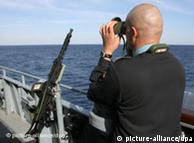 | China angry over France's Sarkozy meeting Dalai Lama
French President Nicolas Sarkozy has met with the Dalai Lama at a gathering of Nobel Peace Prize laureates in the Polish city of Gdansk, raising Chinese anger. The two leaders met during celebrations that marked the 25th anniversary of former Solidarity leader Lech Walesa receiving the Nobel Peace Prize. As current holder of the European Union's six-month rotating presidency, the French leader's decision to engage with the exiled Tibetan spiritual leader has so far seen Beijing retaliate by scrapping a China-EU summit in France earlier this week. It also warned multi-billion-dollar trade deals between China and France were in jeopardy should the meeting go ahead. |  |  | Muslim pilgrims retrace prophet's path as haj starts
Millions of Muslims have begun the haj pilgrimage to Mecca in Saudi Arabia. Over two million Muslim pilgrims have already arrived in the holy city of Mecca amid a vast security operation to prevent militant attacks, deadly stampedes or political activities that could embarrass Saudi Arabia. The Haj symbolically retraces the route Prophet Mohammad took 14 centuries ago. The Saudi government has warned pilgrims not to politicise the haj. There have been deadly clashes between police and pilgrims and between different Islamic factions in the past. |  |  | High alert at India's major airports
India has put its security forces on high alert at major airports across the country, following credible reports of an imminent threat. A spokesman for the country's civil aviation authority specifically named the airports in New Delhi, Bangalore and Madras. He said that concrete threats of attack, kidnapping and plane hijackings had been received in the last few days. Meanwhile, police in Calcutta say they have arrested two men, who allegedly gave mobile telephone cards to the men involved in the Mumbai attacks. |  |  | US Congress expected to vote on carmaker bail-out next week
United Sates Democrat lawmakers are nearing a deal with the White House on a financial life-raft for the struggling auto industry. Following two days of Congressional hearings in Washington, a White House spokesman said talks on a possible rescue package would continue over the weekend. The US Senate is to vote on the 15-billion-dollar rescue plan next week. The plan would borrow cash from a federally subsidized loan program to stimulate green auto technologies. The plan's short-term loans would sustain the industry until March. Earlier on Saturday, US government figures showed that the country's economy had shed more than 500,000 jobs in November. That's the worst one-month loss in more than three decades. |  |  | German police arrest more than 40 at neo-Nazi march
German police have used water cannon to disperse anti-Nazi protesters in Berlin, arresting more than 40 left-wing demonstrators. The left-wingers were trying to block a march organised by far-right activists in eastern Berlin. Several hundred mainly left-wing sympathisers tried to confront some 700 neo-Nazis. The far-right National Democratic Party (NPD), described by the Office for the Protection of the Constitution as racist, anti-Semitic and revisionist, organised the march to demand the establishment of a "national youth centre". No injuries were reported in the clashes. |  |  | Voters in Ghana prepare to go to polls
Voters in the coastal African nation of Ghana are preparing to go to the polls on Sunday to elect their next president. An estimated 12.4 million registered voters, roughly half the country's population of 23 million, will choose from one of eight candidates to succeed President John Kufuor, who is stepping down after two terms as required under the constitution. |  |  | International pressure grows on Mugabe to step down
Zimbabwe's President Robert Mugabe is under increasing international pressure over his country's economic and political implosion, as his government announced plans to introduce a 200-million-dollar bill. Political deadlock, hyperinflation and a cholera outbreak, which has killed more than 560 people, has prompted British Prime Minister Gordon Brown to urge world powers to exert more pressure on Mugabe. Brown said the crisis in Zimbabwe was now "international" and that he hoped the UN Security Council would meet urgently to consider the situation. Earlier, South African Nobel Peace Prize laureate, Archbisop Desmond Tutu, said the use of force to remove Mugabe would be justified. |  |  | Central American countries want common currency
The nations of Central America want to adopt a common currency and a shared credit fund to combat the global financial crisis. Meeting in San Pedro Sula, Honduras, the region's seven countries, plus the Dominican Republic, also agreed to introduce a common passport for their citizens. No timetable for instituting the proposals was given. At present, El Salvador and Panama use the US dollar, while Belize, Costa Rica, the Dominican Republic, Guatemala, Nicaragua and Honduras have their own currencies. |  |  | Russian Orthodox Church pays respects to late patriarch
Russian Orthodox believers on Saturday joined in worldwide tributes to deceased Church leader Alexy II as funeral arrangements were finalised. The Church Patriarch is to be buried in Moscow on Tuesday. The Russian Orthodox Church has announced an interim leader, 62-year-old Metropolitan Kirill, regarded as a reformist in the deeply conservative Church. |  |  | Rome Catholic activist wins Charlemagne Prize
The founder of the Sant'Egidio Community in Rome has been awarded Germany's prestigious Charlemagne prize. Andrea Riccardi, the Catholic layman who founded the community with other lay people at the parish church of Sant'Egidio in Rome 40 years ago, will receive the prize early next year in Aachen. In addition to prayer and charity, Sant'Egidio has actively mediated in an effort to bring peace to nations such as Iraq. Riccardi joins the likes of German Chancellor Angela Merkel, who won the prize in 2008. |  |  | Bundesrat passes 32-billion-euro stimulus package
Germany's upper house of parliament, the Bundesrat, has passed a 32-billion- euro economic stimulus package. The legislation was approved by the lower house, the Bundestag, on Thursday. German Chancellor Angela Merkel says the stimulus plan will help safeguard one million jobs and boost consumption and investment across the country. Meanwhile, the German central bank has issued its latest forecast, which predicts that Europe's biggest economy will shrink by 0.8 percent next year. The Bundesbank said prospects for the German economy have worsened significantly since the end of the summer. The German government's official forecast, released six weeks ago, predicts growth of 0.2 percent next year. |  |  | |  |

